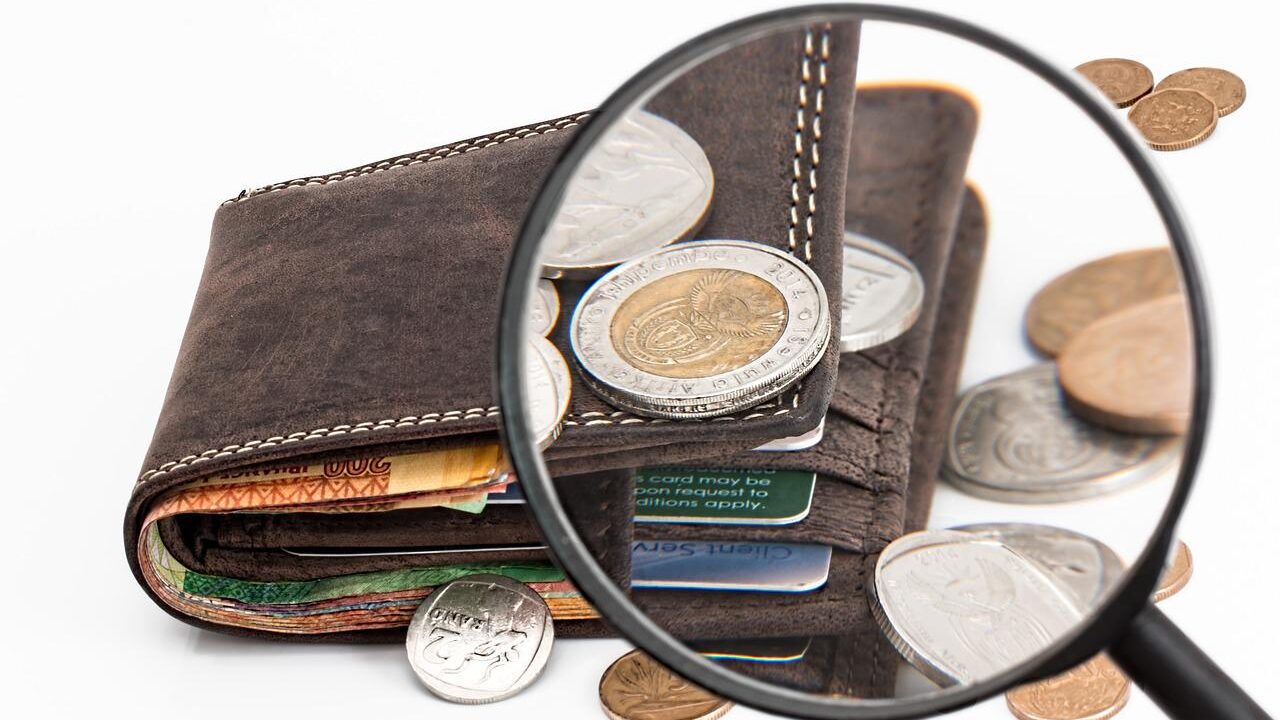ライフハックとしてではなく、英語学習にも極めて有用なのが、著名人が10分程度のプレゼンを行うTEDです。
TED Talksとは、あらゆる分野のエキスパートたちによるプレゼンテーションを無料で視聴できる動画配信サービスのことです。10年ほど前にサービスが開始されてから、政治、心理学、経済、日常生活などの幅広いコンテンツが視聴できることから人気を集めています。
RareJob English Lab
TEDは4000を超える膨大な数の動画があります。しかし慣れないうちは、動画の探し方や視聴のコツが分かりませんよね。この記事では、数多くのTEDを見てきた管理人(塩@saltandshio)が、心を揺さぶられたトークをあらすじと一緒にご紹介します。
ビジネス英会話を効率よく身につけたい方におすすめスクール
シェーン英会話
シェーンは1977年の創業以来、ネイティブ講師が英語を英語で教える「直接教授法」を採用しています。首都圏におけるスクール拠点数は、ネイティブ講師の英会話スクールでNo.1。駅から近いスクールが多いので通いやすく時間を有効に使えます。
スピークバディ パーソナルコーチング
1日1時間の短期集中トレーニングで、あなたの英語力向上をコーチが全力でサポートします。あなたの英語の世界が、劇的に変わります。
TED-Ed:落とした財布を拾ったら?
想像してください。あなたがホテルのロビーで働いていると、ある人物がフロントデスクに駆け寄り、近くで財布を拾ったが、急いでいて時間がなく、届ける暇がないと言います。財布を見ると、鍵、買い物リスト、13ドルの現金、そして名刺が3枚入っており、おそらく財布の持ち主のものです。さて、あなたならどうしますか? この有名な「落とした財布」の実験について解説します。監督: マリナ・ブチンスカ、Action Creative Agency、 ナレーション:ジャック・カットモア=スコット、音楽:ジャン・ウィレム・デ・ウィズ(約5分)。
[PR]無料体験レッスン実施中!全国208校、創業40年の老舗英会話スクール【シェーン英会話】2013年から2016年に行われた、正直さを問う実験
危惧しますと呼ばれるテストが、2013年から2016年の間に世界中のホテル、銀行、役所、文化施設などで働く人など総勢17,000人に対して行われました。
その実験内容とは、透明な財布の中に、鍵と買い物リストと13ドル相当の現金のほかに、財布の持ち主と思われる名刺が3枚入っており、それを渡された人は財布を届けるのか、自分のものにするのか、どちらを選ぶのか?という「正直さ」(良心)を問う実験でした。
結果は、著名な経済学者も、実験を行った研究者も驚くものでした!
And the results surprised top economists and the researchers running the experiment.
なぜ、専門家が驚く実験結果になったのでしょうか。
[PR]まずは無料カウンセリング”続けるため”の オンライン英語コーチ「スピークバディ パーソナルコーチング」「正直さ」とは何か
その前に、この実験で問われた「正直さ」とはなんでしょう。
通常、「正直さ」とは嘘をつかないことであり、相手がいることが前提です。
We typically think of honesty in terms of actively telling the truth in our interpersonal relationships.
健全な社会とは、いまある公共機関のサービスが、人々に対して「正直」に行われているという前提で成り立っています。では、相手に対して「正直」でいなければいけない人たちが、人が見ていなくても正直者でいられるのか?という疑問を調査するために行われたのが、この「The Lost Wallet Test」でした。
この世界規模の実験を行ったのはミシガン、ユタ、チューリヒの大学で、設定した研究課題は「ばれる可能性がゼロに近い時、人々は出来心で行動するのか」というもので、研究助手13人が40カ国の355都市に行き、ホテル、銀行、役所、文化施設などで同じ設定で行われました。
[PR]しちだの魔法ペンなら35日でバイリンガルに!楽天4部門1位の英会話!<七田式>バレる可能性が低いとき、人は良心に従えるのか
財布が届けられたとき、実験者の心にはふたつの感情が沸き上がり、お金を盗むことは難しいと考えられています。その感情とは
- 利他的欲求:財布の持ち主に被害を与えたくない
- 利己的欲求:自己の善人としてのイメージを保ちたい
です。このふたつの感情が沸き上がる理由は、一般的に人は自分を正直な善人だと思いたいからです。
しかし、人の心は魔がさすこともあり、少額ならばお金を盗む傾向があることもわかっています。そのため、この実験ではあえて透明な財布に現金を入れました。その理由は、「現金を見れば、正直でなくなる」と研究者たちが予想したからでした。
これらの理由から、研究者たちは現金の入った財布は届けられないと予想しました。279人の経済学者もそれに同意しました。
For these reasons, researchers expected money-filled wallets to be reported less often, and the 279 economists they surveyed
agreed.
しかし、実験の結果は経済学者を大きく裏切るものでした。
[PR]知って得する、知らないと損をする!すぐに役立つ相手に合った「伝え方」のコツ!思いがけない実験結果
実験結果を見てみましょう。
- 現金が入っていない財布の届け出→46%
- 現金の入っていた財布の届け出→61%
この傾向は世界共通で、実験対象者の年齢や性別に関係なく、財布を届けるのを見られているかどうかも関係ありませんでした。実験者の半数以上が財布を届け出るという予想外の結果が出たため、研究者たちは新たな実験をします。
実験者の誘惑の度合いを上げるため、財布の中の現金を100ドル相当まで増やしたのです。すると、さらに驚きの結果となりました。
72%もの財布が届けられたのです。
財布の中身が高価になるほど正直さが上がるという理論は多くありますが、100ドル入りの財布が利己的欲求を上げたというわけです。
People reported 72% of these big money wallets.
There are a lot of theories for why honesty goes up as the wallet becomes more valuable. The $100 wallet certainly increases self-interest.
この調査結果も全世界共通で、
- 高額の場合は窃盗にあたるため、善人のイメージを保つのが難しくなる
- 失う額が高額だと、持ち主を傷つけるのではないかと心配する
という事情から、届け出が増えたのではないかと考えられています。
[PR]検定試験合格者累計140万人!スマホ対応☆国家資格ほか資格取得ならSMART合格対策講座まとめ:正直者とはなにか
予想を裏切る結果となった今回のテストですが、仕事中でなければ結果は違っていただろうと研究者たちは言っています。
それでも、結果が示すのは利己的欲求は思うより強くないということです。
Still, this result suggests that self-interest might not be as powerful as we often think.
自分を正直者だと思えば、正直者になろうとします。この姿勢を持って他人を尊重することが出来れば、皆が信頼できる正直な社会を作ることができるでしょう。
英語全文
Picture this: you’re working a slow shift in a hotel lobby when someone hurriedly approaches the front desk. They found a lost wallet around the corner, but they’re in a rush and don’t have time to follow up. They ask if you can handle it and then run off. Looking at the wallet you see it contains a key, a grocery list, about $13, and three business cards with a name and email you assume belong to the wallet’s owner. So, what do you do?
<全文を読む>▼クリック▼
We typically think of honesty in terms of actively telling the truth in our interpersonal relationships. But in fact, every healthy society relies on a shared foundation of honesty. Using public services, making business transactions, and deciding government policies requires a baseline expectation of honesty from our fellow citizens. Because of this, understanding what drives honesty is a vital research subject for economists, psychologists, and sociologists. Unfortunately, honesty can be difficult to investigate when people know they’re being watched. So, researchers have come up with clever ways to analyze this behavior outside the lab. And this global study by the universities of Michigan, Utah, and Zurich sought to answer an important question: will people engage in opportunistic behavior when there’s little-to-no chance of being caught?
In what became known as the Lost Wallet Test, 13 research assistants traveled to 355 cities in 40 different countries, recreating the same scenario in hotels, banks, public offices, and various cultural establishments. The clear wallets ensured participants could see their contents, half of which contained a key, grocery list, and business cards, while the other half also included the equivalent of roughly 13 US dollars. The researchers believed the money would discourage honesty. Specifically, they thought participants’ self-interest would overpower two competing factors: their altruistic desire not to harm the wallet’s owner, and their desire to maintain a positive self-image. Regarding self-image, we generally like to think of ourselves as good and honest. But studies have found people are often able to let themselves off the hook for stealing small amounts of money. As for harming the wallet’s owner, the victim of their crime would be abstract. They’d never met this person, and since the wallet had come from another location, it seemed unlikely they ever would.
For these reasons, researchers expected money-filled wallets to be reported less often, and the 279 economists they surveyed agreed. But to their surprise, the study found the exact opposite. While only 46% of cash-free wallets were reported, 61% of cash wallets were called in. This pattern held true across the globe, regardless of the participants’ age, gender, or whether they were being observed during the wallet drop-off. And when researchers tried increasing the temptation to be dishonest with wallets containing nearly $100, the results surprised them again. People reported 72% of these big money wallets.
There are a lot of theories for why honesty goes up as the wallet becomes more valuable. The $100 wallet certainly increases self-interest. But in international follow-up surveys, people reported that taking larger sums of money felt more like theft, making it harder to maintain a positive self-image. It’s also possible that when the financial stakes are higher, so is the perceived harm to the wallet’s owner. Others have suggested that our commitment to honesty could be altered in professional settings, meaning participants might have acted differently outside the office.
Still, this result suggests that self-interest might not be as powerful as we often think. Seeing yourself as an honest person can motivate you to be an honest person. And by modeling this behavior and celebrating it and others, we can help create an honest society we can all rely on.
<閉じる>
\ ほかにも気になるトークが満載! /








